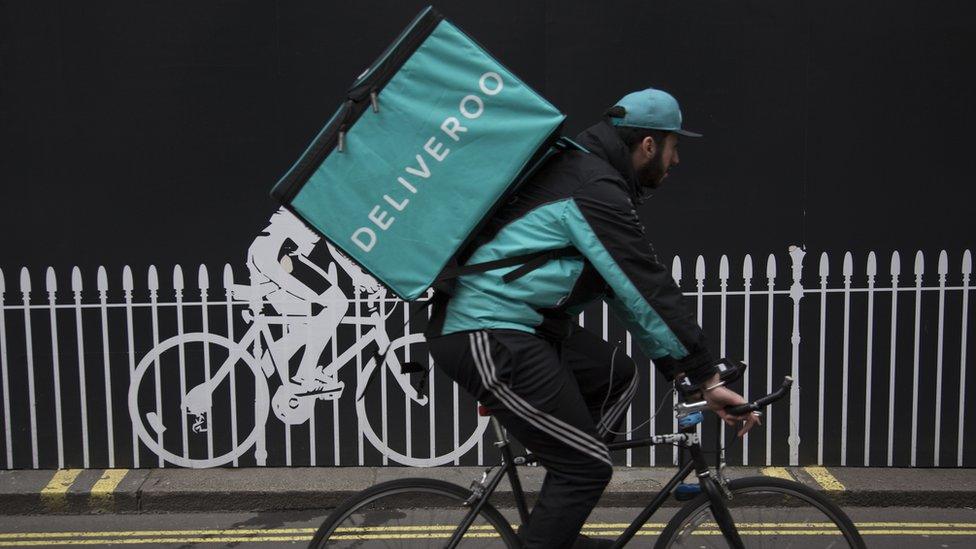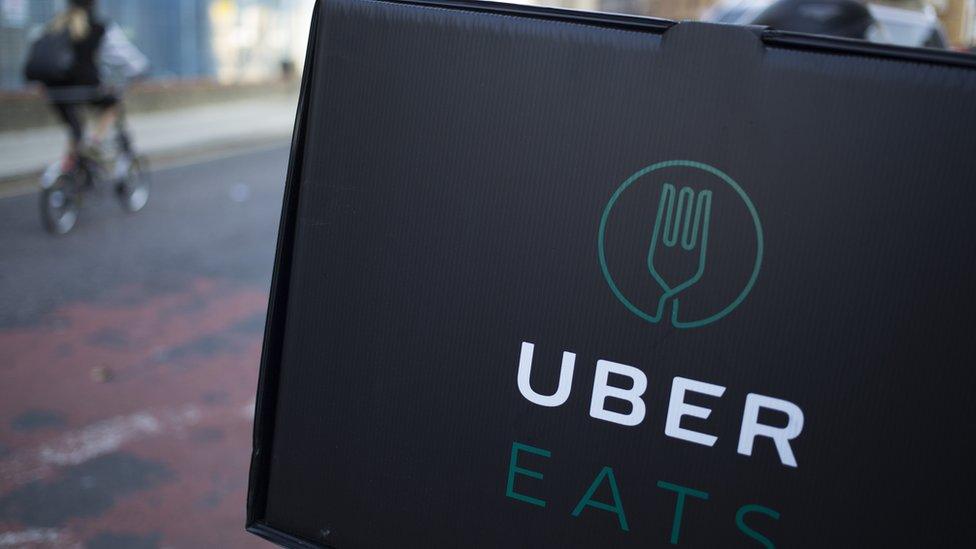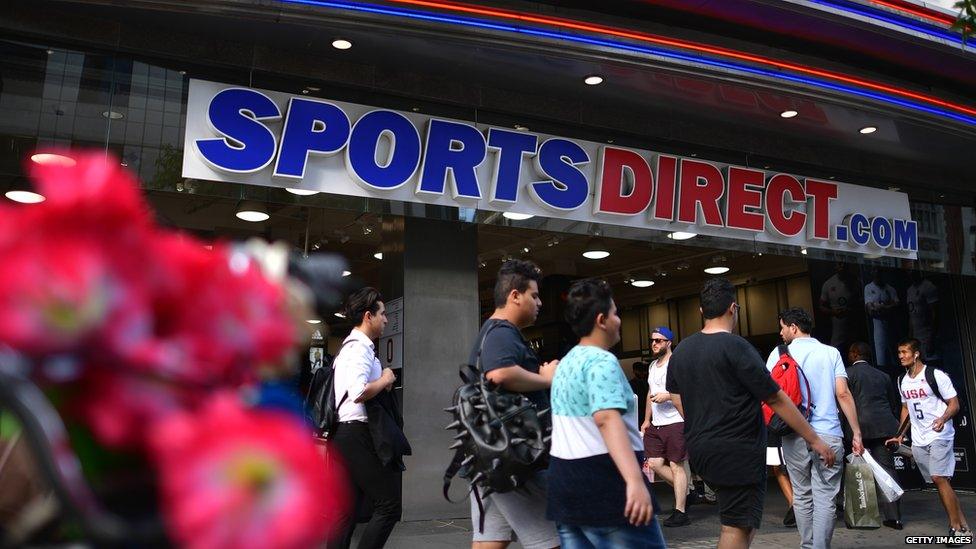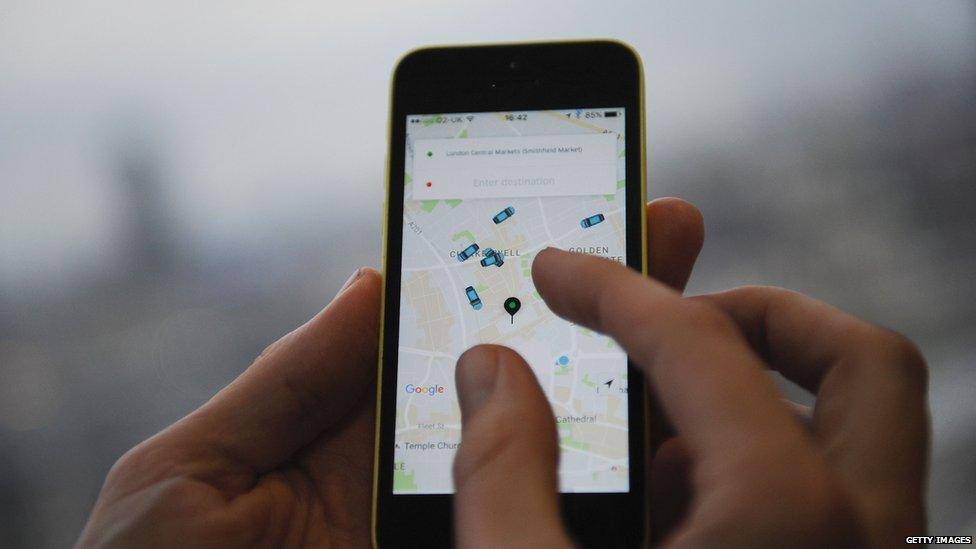Deliveroo and Uber: What is the 'gig' economy?
- Published

Some couriers from Deliveroo are taking legal steps against the company to get better workers' rights.
It follows a court case last month where Uber drivers won the right to be classed as workers rather than self-employed.
That affects things like getting the minimum wage and holiday pay.
So now more people are talking about the so-called 'gig economy', but what is it?

What exactly is the 'gig economy'?
People who work in the gig economy have small jobs instead of - or as well as - full time jobs.
Instead of a salary, workers get paid for the 'gigs' they do, like a food delivery or a taxi journey.
In the UK it's estimated that five million people are employed as independent workers like this.
Jobs range from couriers, taxi drivers to video producers.
How is it different to zero-hours contracts?
You may have heard of zero-hours contracts which have been controversially used by companies like Sports Direct, JD Wetherspoons and Cineworld.
Like workers in the gig economy, zero-hours contractors - or casual contractors - don't get guaranteed hours or much job security from their employer.
But people on zero-hours contracts are seen as employees in some sense, entitled to holiday pay but not sick pay.
So-called gig economy workers don't get holiday pay.

Why some say the gig economy is good
Many people like the flexible hours and control over how much they can work.
It's supposed to make workers more productive.
Uber driver Grant from Newcastle told Newsbeat: "In general I earn more than minimum wage.
"Some weeks you might earn a little bit less, but other weeks you might earn double the minimum wage."
Deliveroo rider Hannah Jones also likes the flexibility as she's doing a degree and wants a bit of extra cash.
"I'm studying, so I can work when I want and for how long I want to."
Employment lawyer Julie Morris says it's good for employers too.
"It's a very flexible arrangement, meaning employers only pay when the work is available and don't incur expensive staff costs when the demand is not there."

Why some say the gig economy is bad
Workers are classed as self-employed in the gig economy.
Employment lawyer Julie Morris told Newsbeat: "There is very little employment protection.
"They have no protection against unfair dismissal, no right to redundancy payments, no right to receive the national minimum wage, paid holiday and no sickness pay."
Deliveroo worker Billy Shannon gets £3.75 per delivery and it means he often gets paid under the minimum wage if it's not busy.
"We can be waiting for up to an hour for a delivery without getting paid a penny."
What does the government say?
The Department for Business is holding an inquiry into a range of working practices - including the gig economy.
A spokesman said: "We want to ensure our employment rules are up to date to reflect new ways of working."
Find us on Instagram at BBCNewsbeat, external and follow us on Snapchat, search for bbc_newsbeat